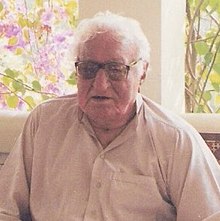
Back خان عبد الولي خان Arabic আবদুল ওয়ালী খান Bengali/Bangla Abdul Wali Khan German Khan Abdul Wali Khan French עבדול ולי ח'אן HE ਖਾਨ ਅਬਦੁਲ ਵਲੀ ਖਾਨ Punjabi خان عبد الولی خان PNB خان عبدالولي خان Pashto/Pushto خان عبد الولی خان Urdu
Abdul Wali Khan عبدالولی خان عبدالولي خان | |
|---|---|
 | |
| Leader of the Opposition | |
| In office 2 December 1988 – 6 August 1990 | |
| Preceded by | Fakhar Imam |
| Succeeded by | Benazir Bhutto |
| In office 14 April 1972 – 17 August 1975 | |
| Preceded by | Nurul Amin |
| Succeeded by | Sherbaz Khan Mazari |
| Personal details | |
| Born | 11 January 1917 Utmanzai, British India |
| Died | 26 January 2006 (aged 89) Peshawar, North-West Frontier Province, Pakistan |
| Political party | Awami National Party (1986–2006) |
| Other political affiliations | Khudai Khidmatgar Indian National Congress (Before 1947) National Awami Party (1957–1968) National Awami Party-Wali (1968–1986) |
| Spouse | |
| Relations | Abdul Ghani Khan (brother) Khan Abdul Jabbar Khan (uncle) Khan Abdul Bahram Khan (Grand father) |
| Children | Sangeen Wali Khan Asfandyar Wali Khan |
| Parent(s) | Abdul Ghaffar Khan Meharqanda Kinankhel |
| Education | Azad Islamia High School |
Khan Abdul Wali Khan (Pashto: خان عبدالولي خان; Urdu: خان عبدالولی خان; 11 January 1917 – 26 January 2006) was a Pakistani democratic socialist politician who served as president of Awami National Party. Son of the prominent Pashtun nationalist leader Abdul Ghaffar Khan, Wali Khan was an activist and a writer against the British Raj like his father.[1]
His early years were marked by his involvement in his father's non-violent resistance movement, the "red shirts" against the British Raj. He narrowly escaped an assassination in his early years and was later sent to school at Colonel Brown Cambridge School, Dehra Dun.[2] In his late teens, he became active in the Indian National Congress. After the formation of Pakistan in 1947, Wali Khan became a controversial figure in Pakistani politics during his political career because of his association to the Congress which opposed the creation of Pakistan.[3][4]
A respected politician in his later years, he contributed to Pakistan's third constitution and led protests for the restoration of democracy in the 1960s and 1980s.[5] In the 1970s, he also served as the parliamentary leader of opposition in Pakistan's first directly elected parliament.
- ^ Interview with Wali Khan, Feroz Ahmed Pakistan Forum, Vol. 2, No. 9/10 (June – July 1972), pp. 11-13-18.
- ^ Schofield, Victoria (22 August 2003), Afghan Frontier Feuding and Fighting in Central Asia. Tauris Parke Paperbacks; General edition. ISBN 1-86064-895-9
- ^ Pirzada, Sayyid A. S. (2000). The Politics of the Jamiat-i-Ulema-i-Islam Pakistan, 1971–1977. Oxford University Press Inc, USA. ISBN 0-19-579302-1
- ^ "Abdul Wali Khan". www.comminit.com. Retrieved 18 June 2022.
- ^ Chowk, Khan Abdul Wali Khan: His Father's Shadow? January 25, 2006 Archived 27 October 2006 at the Wayback Machine. Last accessed 23 June 2006.
© MMXXIII Rich X Search. We shall prevail. All rights reserved. Rich X Search